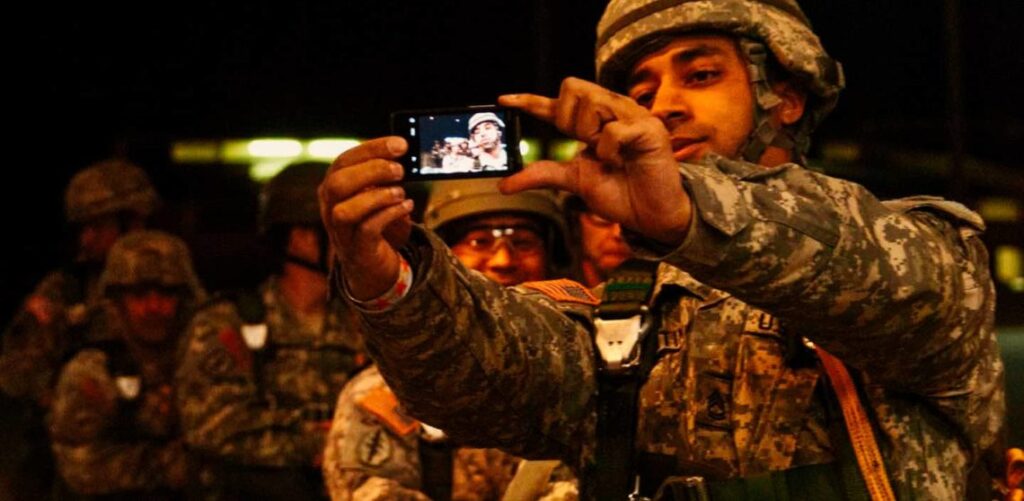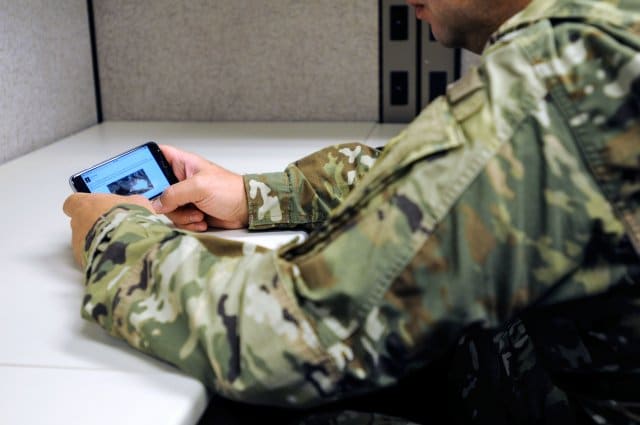HERE’S WHY THE PENTAGON SAYS YOU SHOULD DELETE TIKTOK
- By Alex Hollings
Share This Article

The Pentagon recently released guidance to all service members advising that they delete the popular social media application “TikTok” from their smart phones, and a number of military branches have heeded the call by mandating its deletion on all issued digital devices. Some commands are even going further, encouraging troops to delete the application from their personal devices as well.
Why is the Pentagon worried about TikTok?
Data Collection

Many of the concerns the Defense Department has about the social media application all pertain to the app’s Chinese ownership, and fears that the program could be used to gather intelligence on American personnel. These fears were first addressed by Sen. Marco Rubio, R-Florida, who requested that the Treasury Department look into the national security implications of TikTok’s data storage practices in relation to Chinese laws mandating ready access to all data stored within the nation’s servers. In effect, Chinese law states that the government can access any and all information that flows through Chinese servers without giving notice to service providers, companies, or end users. In the event TikTok data travels through Chinese servers, that means the Chinese government can access any and all data collected from its user’s smartphones without the need for a warrant or any form of notification.
“The threat posed through facial recognition, location data, and A.I. based image scanning techniques could allow the Chinese government to obtain sensitive information,” Rubio said in a statement to Military Times. “In the wrong hands, this information poses a risk, not only to the individual involved, but to American national security.â€
Censorship and Foreign Influence Campaigns

Concerns about TikTok extend beyond that of espionage. Many are also concerned about the way the Chinese government can manage narratives through use of the application. Numerous reports have suggested that TikTok, like many Chinese-owned brands, maintains strict censorship practices over content the Chinese government wants suppressed, like recent protests in Hong Kong. Some worry that China may be using social media platforms like TikTok to engage with American audiences and push pro-Chinese narratives using the same methods leveraged by advertisers who are trying to engage young Americans.
These concerns were outlined in a letter written by Senators Chuck Schumer and Tom Cotton, Democrat of New York and Republican of Arkansas, to Joseph Maguire, the director of national intelligence, late last year.
“TikTok reportedly censors materials deemed politically sensitive to the Chinese Communist Party, including content related to the recent Hong Kong protests, as well as references to Tiananmen Square, Tibetan and Taiwanese independence, and the treatment of Uighurs. The platform is also a potential target of foreign influence campaigns like those carried out during the 2016 election on U.S.-based social media platforms,” the letter read.
What should you do if you already have a TikTok account?

If you’re an active duty service member, you should delete the application from any government issued digital devices immediately, though you’re still not barred from keeping the application on your personal mobile device. However, just because you can keep TikTok on your smart phone doesn’t necessarily mean that you should. TikTok is one of multiple avenues the Chinese government can use to manage public narratives and disseminate propaganda. In short, it’s best just to delete the app.
However, deleting TikTok doesn’t mean you’re safe from foreign influence campaigns and efforts to steal your own personal information. Nation-level actors are present on every social media platform, and your personal data can still be stolen (or gathered) from social media applications that aren’t owned by Chinese companies. Russia recently passed similar laws regarding access to data that passes through their servers, and even American-based companies like Facebook have repeatedly come under scrutiny for their data collection and distribution practices.
What can you do to keep yourself safe on social media?

You should always be careful when sharing personal information online, and it’s best to assume that most platforms are compromised to a certain degree. For service members, maintaining OPSEC, or Operational Security, is essential for mission accomplishment and troop safety. Make sure you are not sharing your location with any applications, particularly while executing official duties, and be careful any time you post images online that you take on post.

Some other good tips for service members and their families include:
Do not announce that you or a service member you know are currently deployed.
Example: “Please send prayers to our son Daniel who’s deployed in Iraq right now.”
Don’t give out specific information regarding where a unit is or when they might be moving.
Example: “We’re so excited that Daniel’s unit comes back from Iraq in three weeks!”
Make sure you turn location services to OFF when executing official duties. It’s best to leave it off all the time.
Example: Applications that track your location during runs for PT can share specifics of your location with bad actors on the web.
Try not to mention the specific roles any service members have during deployments.
Example: “Daniel just sent us this picture of him with his whole EOD crew! These guys are the best!”
Trying to maintain OPSEC while you or a loved one is deployed can seem daunting, but there’s one rule of thumb that can make it easier to appreciate what information you should or shouldn’t share on social media: Never post any information you wouldn’t want to fall into the enemy’s hands, because chances are, it will.
Feature image courtesy of Staff Sgt. Sharilyn Wells, U.S. Army
Related Posts
Sandboxx News Merch
-

A-10 ‘Thunderbolt Power’ Framed Poster
$45.00 – $111.00 Select options This product has multiple variants. The options may be chosen on the product page -

‘Sandboxx News’ Camo Trucker Hat
$29.00 Select options This product has multiple variants. The options may be chosen on the product page

Alex Hollings
Alex Hollings is a writer, dad, and Marine veteran.
Related to: Military Affairs, Pop Culture

Where do NATO reporting names come from?

How US Special Forces took on Wagner Group mercenaries in an intense 4-hour battle

F-16s carrying the A-10’s 30mm cannon actually saw combat

How does China’s new J-35 stealth fighter compare to America’s F-35?
Sandboxx News
-

‘Sandboxx News’ Trucker Cap
$27.00 Select options This product has multiple variants. The options may be chosen on the product page -

‘AirPower’ Classic Hoodie
$46.00 – $48.00 Select options This product has multiple variants. The options may be chosen on the product page -

‘AirPower’ Golf Rope Hat
$31.00 Select options This product has multiple variants. The options may be chosen on the product page -

‘Sandboxx News’ Dad Hat
$27.00 Select options This product has multiple variants. The options may be chosen on the product page
